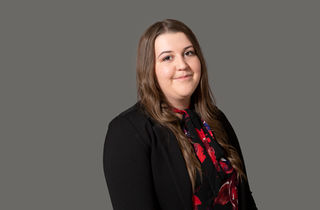Key takeaways from the Social Housing Magazine annual conference
02/12/22Yesterday marked the annual Social Housing Magazine conference and it was great to see the conference hall packed with so many familiar faces from the sector. Partner Susie Rogers and Associate Kayleigh Bradford from Capsticks both attended.
With a very challenging economic outlook, and a clear desire from the sector to do more to ensure the safety of residents, there were some very interesting discussions about how RPs can do the best for their customers. Below are some of the key takeaways from the conference:
- The Government currently views housing as a priority issue, which is good news for the sector as a whole.
- Levelling up and devolution are also high on the political agenda, and housing has a key role to play in this. It’s likely to feature prominently in the next general election, which gives the sector a good opportunity to drive through real change.
- The economic outlook is looking sombre, with house prices predicted to fall and inflation and interest rates still on the rise. But economists are hopeful this will level out in the medium term, and there are already some promising signs – for example, energy prices are back to April 2022 levels.
- The Regulator has a clear focus on safety. Registered Providers (RPs) must ensure their homes are decent and safe, to ensure the wellbeing of residents, and also to protect social housing assets. The Regulator said there was risk of irrefutable reputational damage to the sector as a whole if the sector does not manage the quality of its stock.
- The Regulator’s new consumer regulation powers are expected to receive royal assent in the New Year. Consultation on the proposed new consumer standards will follow later in 2023. The Regulator stressed, again, that organisations should not wait for these changes, but should assess the likely impact now. RPs must provide safe, good quality homes, and proactively refer themselves to the Regulator if any breaches are uncovered.
- Data on tenant satisfaction measures must be collected from April 2023. The aim is to increase transparency for tenants, but Boards are expected to use this data to ensure that they are providing safe and decent homes, as well as a good service, to their residents.
- All RPs must respond to the Regulator’s letter regarding damp and mould. The Regulator will review this information to assess compliance with the standards. When gathering this information, if your organisation uncovers that it is not compliant with the standards, it must self-refer to the Regulator.
- The Regulator feels that the decent home standard also needs updating, but this is not on the agenda at the moment. In discussing business planning, one panel recommended that organisations consider carefully their charitable purpose, and that systemic and permanent change is needed in the sector to ensure that RPs are able to meet future crises.
- Sustainability and carbon neutrality was a key discussion point. Many RPs have been working hard to ensure that they have money to invest in retrofitting existing stock, as well as developing new homes that have an EPC rating of “A”, and/or which are carbon neutral. Selvin Brown from the Department for Business, Energy and Industrial Strategy confirmed that there will be a consistent flow of funding for such projects over the coming years.
- Financial investors are still assured that social housing remains a long-term investment and good fit for private investment.
How Capsticks can help
Capsticks aims to be the firm of choice to registered providers, offering a full service across finance, development and planning law, corporate and securitisation, housing leasehold and asset management.
If you have any queries around what's discussed in this article, and the impact on your sector or organisation, please speak to Susie Rogers or Kayleigh Bradford to find out more about how Capsticks can help.






